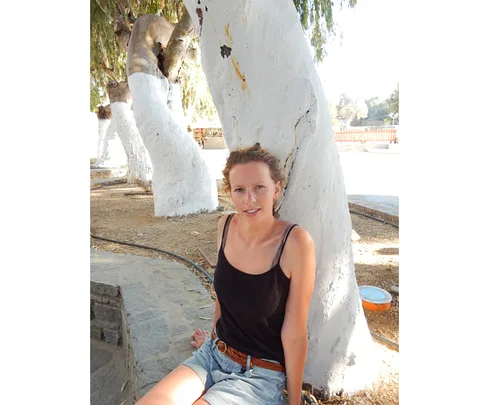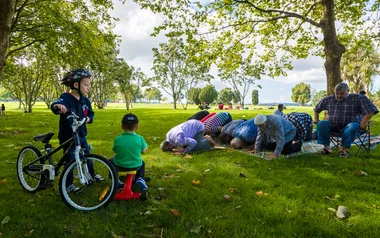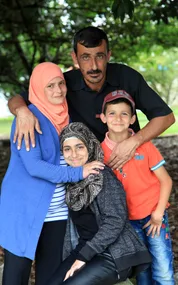The Syrian refugee crisis is now considered the worst humanitarian crisis of our time. As refugee numbers climb past 4.5 million, resources and aid agencies are scrambling to cope.
New Zealander Sophia Duckor-Jones is at a refugee camp in Ritsona, just north of Athens. She writes this first-hand account of her experiences there:
“I could tell you about the lack of running water at the refugee camp or the lack of Wi-Fi and what that means for people separated from their families.
I could tell you about the rotting food deliveries or the rampant lice epidemic, or the refugees’ limited access to medical help.
Instead, I’ll tell you about the mothers and expectant mothers, those who escaped war zones, risking everything to save their children’s lives, hoping for a more secure future.
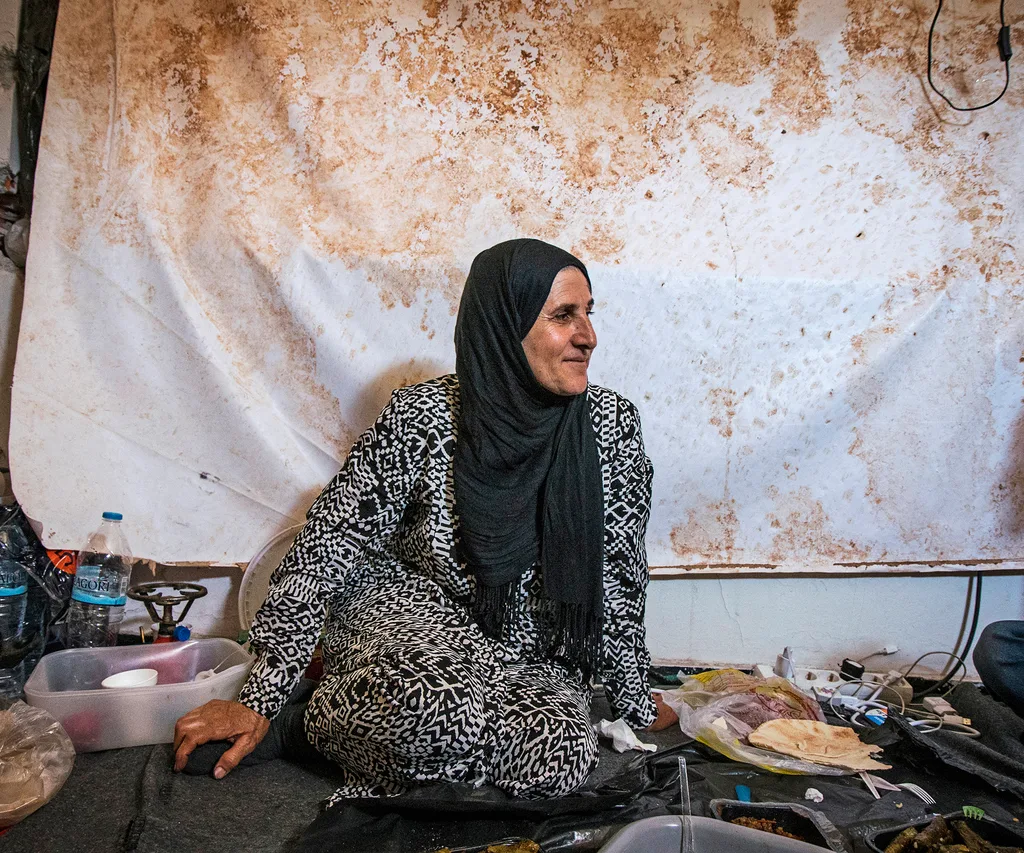
Zahara, who fled Syria with her children and lived in tent number 118 with them.
There are 658 refugees at Ritsona, a former Greek military base near Athens.
Of that number, there are 23 pregnant women. The camp was one of many quickly established in response to some 54,000 refugees who swamped Greece last year.
Most of the refugees at Ritsona are Syrian, with a handful from Afghanistan, and a small number of Palestinians and Yazidis (an ethnic group from Iraq, which was nearly wiped out by the Islamic State – ISIS).
Two pieces of worn cardboard hang at the camp’s entrance, with a message that reads, ‘Open the borders… We are not animals.’
Each morning when I arrive at the camp, I’m greeted by bored children, eager for attention. Many of their heads are shaved to fight off lice. I marvel at their big, brown eyes and shudder to think what they have seen.
One little girl follows me around the camp with her four-year-old sister. I met this girl on my first day here, almost seven weeks ago. The first thing she said to me was, ‘Me no mother.’
I later learned from other volunteers that her mother was killed by ISIS right in front of her. I continue, past the tents, some of which have been tagged with the refugees pleas: ‘Where are our human rights?’ ‘I miss you Muma.’
I make my way to tent number 118, occupied by Zahara and her two daughters, Asmaa (22) and Iman (15).
This is their home – a single pallet all three sleep on, a few blankets, one cooking pan and a gas stove for tea and coffee.
After bombs destroyed their neighbourhood, Zahara fled with her children. When I ask who was responsible for the bombing, she shrugs. But I’m not sure she understood my English.
Asmaa had just completed her first year of law at university in Damascus when the family had to flee. Zahara’s son was first to leave. He managed to make it to Germany last year – Zahara and her daughters had hoped to meet him there soon after.
A heart condition prevented her husband from travelling. He has had to stay in Syria – Zahara isn’t sure when, or if, she will see him again.
When I ask them about their life in Greece, Asmaa stops stirring the tea and looks up. ‘We were told we would only be in Greece for a few weeks,’ she says. ‘We have been here for six months. We were lied to. Everyone lied to us.’
She pours the tea into china cups and we drink in silence.
When I leave Zahara’s tent, I bump into Mostafa. He’s heading back to his tent to have lunch with his wife Fatima and brother-in-law Mohammed. They are all living in the same tent. Mostafa invites me to eat with them – lunch is potatoes and a stick of cheese provided by the army.
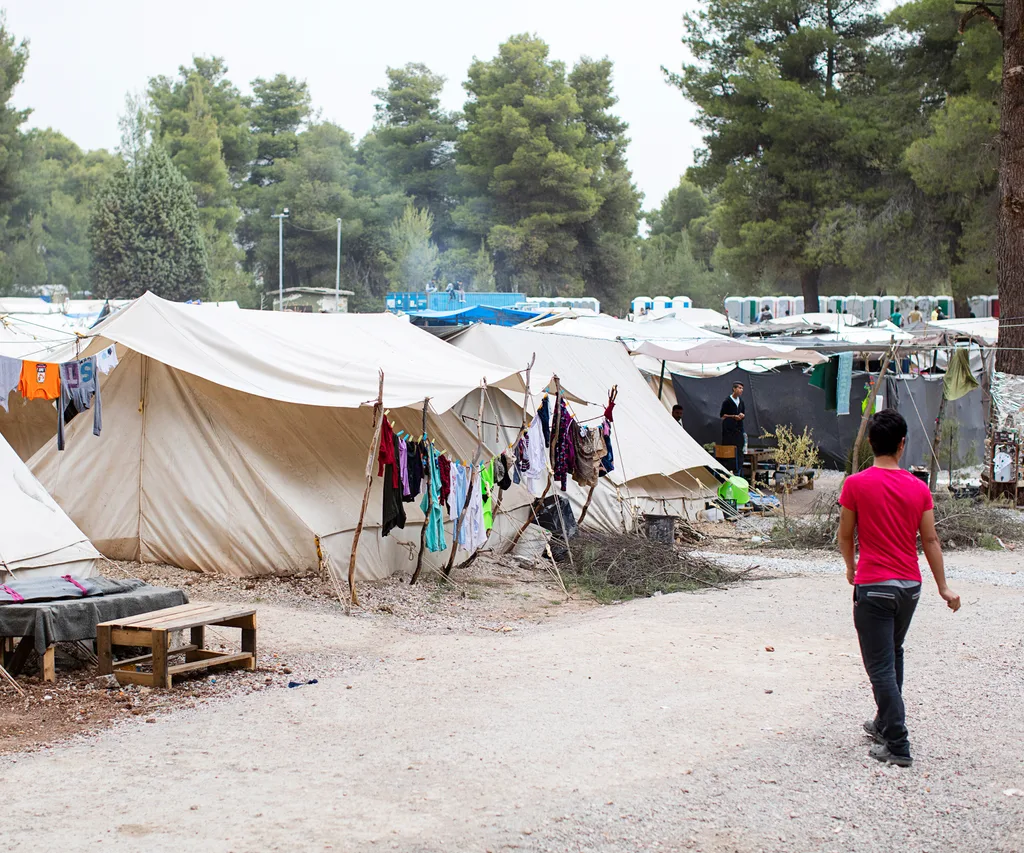
Fatima is 18 and four months pregnant with her first child. She’s shy and petite. Her body is covered head to toe – I can only see her youthful face.
Her older brother sits at the entrance of the tent on a thin mattress and UN-issued blankets. Behind his bed, an unzipped sleeping bag hangs from the ceiling to provide some privacy for Mostafa and Fatima.
I peek through. Their bed is a wooden pallet. I wonder how uncomfortable Fatima must be lying on it.
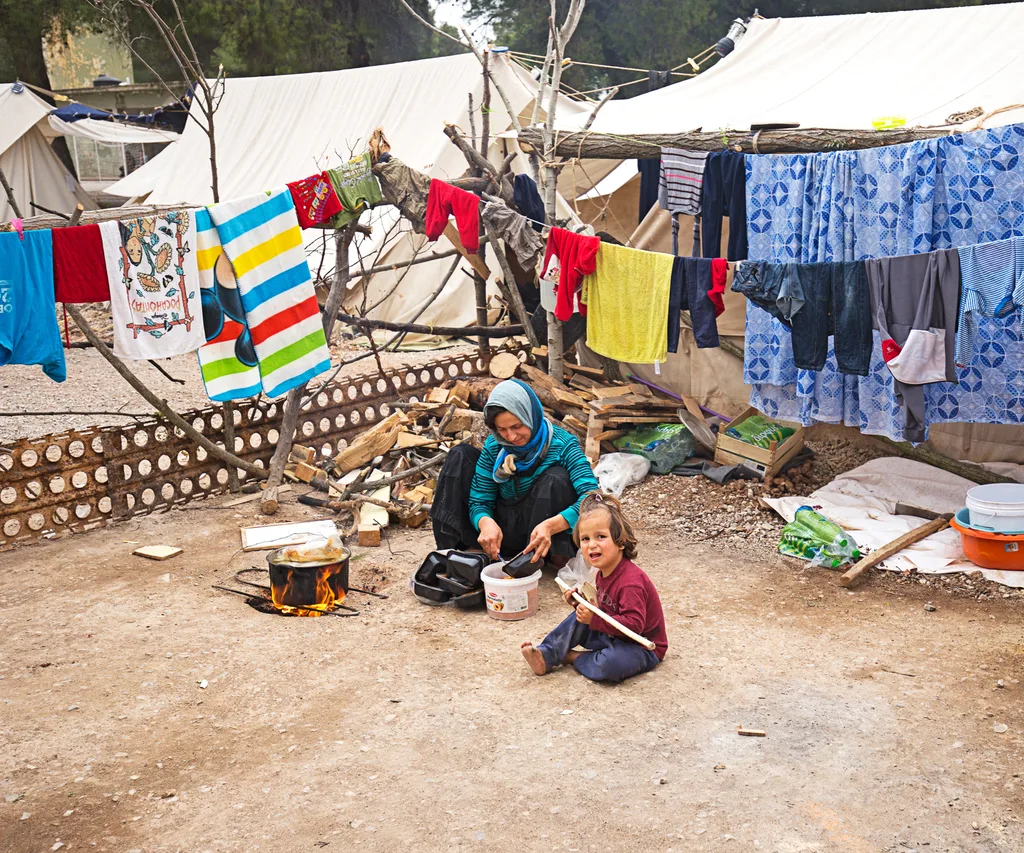
She has decorated her ‘bedroom’ and I’m quickly reminded of her age. Pink stickers and hearts are stuck to the side of the tent. She is a child, bringing another child into this camp.
I ask her how she’s feeling. She’s been suffering from morning sickness. Perhaps this is where I should say there are only 41 port-a-loos provided.
Mostafa tells me they have no money – he’s worried. ‘We can’t be here. Not when the baby comes, not here.’
There is no midwife in the camp, and support for newborn babies and their mothers is lacking.
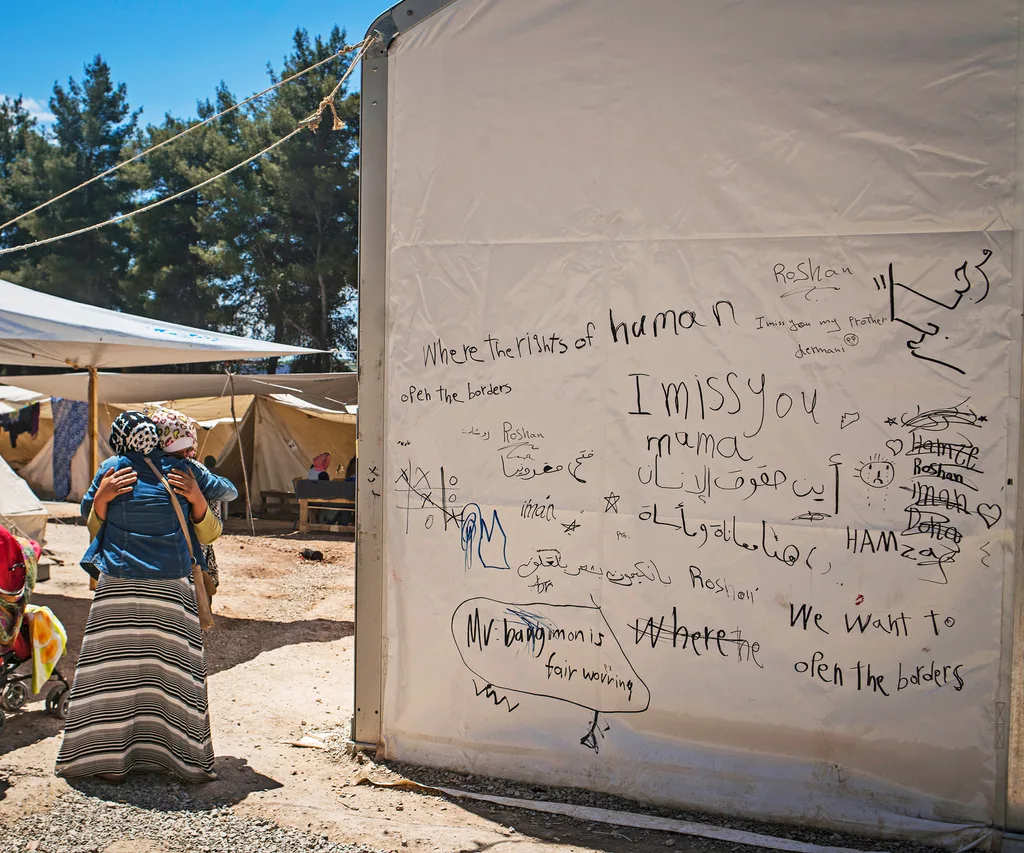
The reality of having a baby at a refugee camp has sunk in for most of the women here, many of whom have asked for the contraceptive pill, putting their religious beliefs aside.
When I first got to Ritsona camp, I asked a woman what she thought of the place she had arrived to. ‘In Syria, we die quickly. Here, we die slowly.’”
How you can help
A group of current and former volunteers at Ritsona map have set up an organisation, CRIBS International, in a bid to raise money to rent an apartment for women and newborns post birth.
If you would like to help, please donate via this link.
Words: Sophia Duckor-Jones
